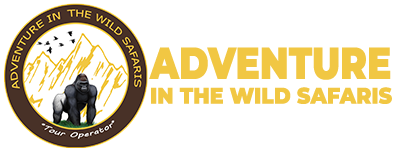What is the cost of a gorilla trekking permit in Uganda and Rwanda?
What is the cost of a gorilla trekking permit in Uganda and Rwanda?
Gorilla trekking is a profoundly moving experience, allowing adventurers to observe the endangered mountain gorillas in their natural habitat. The thrill of encountering these gentle giants comes with a price, primarily reflected in the cost of trekking permits. The cost of these permits varies between Uganda and Rwanda, two of the most popular destinations for gorilla trekking. Understanding these costs and what they encompass is crucial for anyone planning this unique adventure.
Uganda: Gorilla Trekking Permits
Uganda offers one of the most affordable options for gorilla trekking. The country’s permits are issued by the Uganda Wildlife Authority (UWA), and the primary destinations for trekking are Bwindi Impenetrable National Park and Mgahinga Gorilla National Park.
Cost for Foreign Non-Residents:
As of 2024, a gorilla trekking permit for foreign non-residents costs USD 800 per person. This fee is relatively affordable compared to neighboring Rwanda, making Uganda a popular choice among budget-conscious tourists.
Cost for Foreign Residents:
Foreign residents in Uganda pay a slightly reduced fee of USD 700 per person. This discount is available to individuals living and working in Uganda or East African Community (EAC) countries.
Cost for East African Citizens:
Citizens of EAC countries, which include Uganda, Kenya, Tanzania, Rwanda, Burundi, and South Sudan, enjoy a significantly lower rate of UGX 300,000 (approximately USD 80) per person.
Rwanda: Gorilla Trekking Permits
Rwanda is known for its luxury gorilla trekking experiences, primarily in Volcanoes National Park. The Rwanda Development Board (RDB) manages the issuance of permits, which are considerably more expensive than those in Uganda.
Cost for Foreign Visitors:
The cost for a gorilla trekking permit in Rwanda is USD 1,500 per person. This high price tag reflects Rwanda’s strategy to position itself as a high-end tourism destination, offering exclusive and less crowded trekking experiences.
Cost for Foreign Residents:
Foreign residents in Rwanda pay the same rate as international tourists, USD 1,500 per person. Rwanda does not offer discounted rates for foreign residents.
Cost for East African Citizens:
Citizens of EAC countries pay USD 500 per person. This discounted rate aims to encourage regional tourism and make the experience more accessible to locals.
Factors Influencing Permit Costs
Several factors contribute to the variation in permit costs between Uganda and Rwanda:
Conservation Efforts: Both countries use permit revenues to fund conservation programs, anti-poaching efforts, and community development projects. Rwanda’s higher permit fees contribute significantly to these initiatives, reflecting the country’s focus on sustainability and high-value tourism.
Tourism Strategy: Rwanda has positioned itself as a premium destination, focusing on high-end tourism with fewer visitors. This strategy ensures a more exclusive experience, justifying the higher cost of permits.
Infrastructure and Accessibility: Rwanda has invested heavily in tourism infrastructure, offering luxurious lodges and well-maintained trekking paths. Uganda, while also developing its infrastructure, offers a more rugged and adventurous experience, which is reflected in its more affordable permit prices.
What the Permit Costs Include
Both Uganda and Rwanda provide a comprehensive package within the permit cost:
Guided Trek: Professional guides and rangers lead the treks, ensuring safety and enhancing the experience with their knowledge of gorillas and the ecosystem.
Park Entrance Fees: The permit cost includes entrance fees to the national parks.
Community Support: A portion of the permit fee goes to local communities living around the parks, supporting education, healthcare, and infrastructure projects.
Planning Your Trek
When planning a gorilla trekking adventure, securing permits should be the top priority. Permits are limited to protect the gorillas and their habitat, and they sell out quickly, especially during peak seasons (June to September and December to February). It is advisable to book permits at least six months in advance.
Conclusion
Gorilla trekking is a significant investment but offers an unparalleled experience with one of the world’s most endangered species. Whether you choose the affordable adventure in Uganda or the exclusive encounter in Rwanda, understanding the costs involved helps in planning and making the most of this extraordinary journey. The funds generated through permit sales are crucial for the continued conservation of mountain gorillas, ensuring that future generations can also marvel at these incredible creatures.





Comments are closed